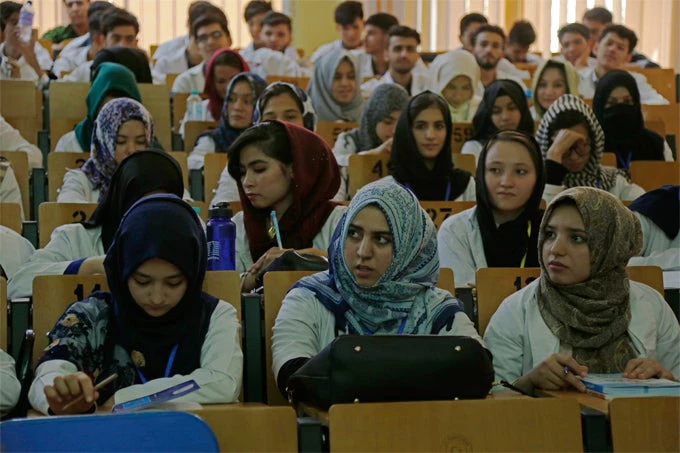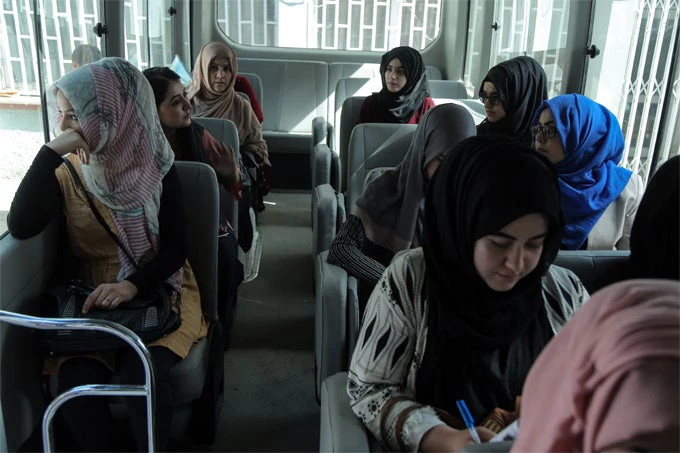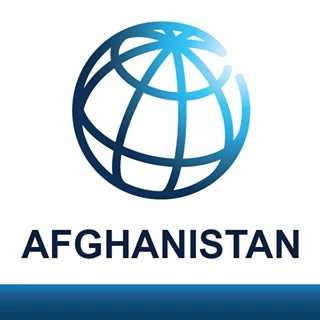
As a women’s rights activist who has dedicated the past six years of her life to empowering women, ensuring that women can access education is crucial to me.
This is what motivates me in my work with the Higher Education Development Program (HEDP) at the Ministry of Higher Education (MoHE), the principal body responsible for providing and regulating higher education in Afghanistan.
When I joined the MoHE as a Gender Specialist in 2016, I mainly focused on making sure female students did not face the same challenges I personally encountered as a student at Kabul University.
Some of the issues my friends and I remember was traveling long distances to the university, the lack of facilities for female students on campus , and the few opportunities to go abroad for postgraduate studies. Factors which, together, led to low female enrollment rates.
Today, with support from the Afghanistan Reconstruction Trust Fund (ARTF), many of the challenges I witnessed have been resolved with the initiation of the second National Higher Education Strategic Plan, 2015–2019, under the HEDP.

Providing resources to help women succeed
As a result of HEDP initiatives, female students enjoy safe transportation in the form of 25 minibuses , which get them to and from the university.
So far, about 1,000 female students have benefited from such services, especially in cities and provinces, such as Herat, Jawzjan, Kabul, Kunar, and Kunduz, where the need for safe, reliable transportation is much higher because of the lack of public transport or safety concerns.
Humaira Saadat, a fifth-year medical student at Kabul Medical University, says that safe transportation has been crucial to her success and that of her classmates.
She believes that “the most important point is that females feel very safe knowing that they are being transported by an institution they can trust, an institution that will not tolerate harassment of women or discriminate based on gender or financial status”.
Humaira says that free and safe transportation has improved her attendance in class and at training sessions in the hospitals.
“Previously, I had to use different public vehicles and find different stations to get to my lessons and the hospitals,” she says. “If I was late, I would be marked absent, which would hurt my academic standing. But now, I don’t have this problem because I can take the bus provided by HEDP .”
Providing more university residential facilities for women has also been a priority for HEDP, with plans to build a standard dormitory in five universities, two of which, in Bamyan and Kunar, are expected to be completed next year.
This means that more than 1,000 female students will enjoy safe university housing.
Additionally, the program has helped renovate 20 public universities, built female lavatories, and upgraded water and sanitation facilities , the lack of which had been a significant issue for female students on campus.
Soqhra Zahidi, 22, a fourth-year stomatology student at Kabul Medical University, emphasizes the importance of having university residential facilities and safe transportation for women.
A native of Balkh province, Soqhra says the availability of safe and appropriate housing and transportation is an important issue that all female students from the provinces are concerned about when applying to university.
She points out: “Those who are from the provinces have to have a safe place to live and transport is also important because in a new city, you do not know which transportation is safe. The HEPD transportation is important for girls and the other facilities created help us feel secure and comfortable at university .”
These services and facilities may not seem like much. But as a woman who has seen and personally experienced these issues, I can say that these improvements are crucial to making female students feel they have a place in university.

Giving women opportunities to grow
Because of the inequalities that exist in our world, not everyone, unfortunately, can exercise their right to education.
These inequalities disproportionately affect girls and women everywhere, but here in Afghanistan, the HEDP team and I are determined to break the cycle.
In 2018, HEDP started providing 100 scholarships for disadvantaged female students (disabled and very poor) to help them study for a bachelor’s degree at public universities. The program is expected to expand significantly in the coming years.
Further, at least one-third of the MoHE scholarships that aim to improve the qualifications of academics at public universities by funding master’s degree courses are awarded to female academics to pursue their higher education abroad.
With the financial support of HEDP, 65 female academics are completing a master’s degree abroad, while another 41 will start their studies in 2018 .
Although I am proud of the progress HEDP initiatives have achieved, in my opinion, the greatest achievement of my work is the unlikely partners we have brought on board to support our mission.
One of those partners is Paktia University, which, with fewer than 100 female students, had one of the lowest female enrollment rates in the country.
That changed in 2018 when the university adopted an existing quota system to set aside 435 places for female students .
Similarly, HEDP has encouraged other universities across the country to reserve places for female students in 10 priority faculties , leading to an increase in female students in these faculties. This initiative is encouraging more girls to take the Kankor exam, Afghanistan’s national university entrance exam.
To see these universities, like Paktia University, take the lead in improving women’s access to higher education makes me feel that we are indeed making a difference .


Join the Conversation